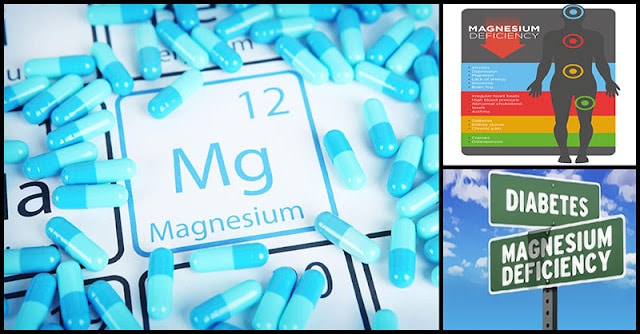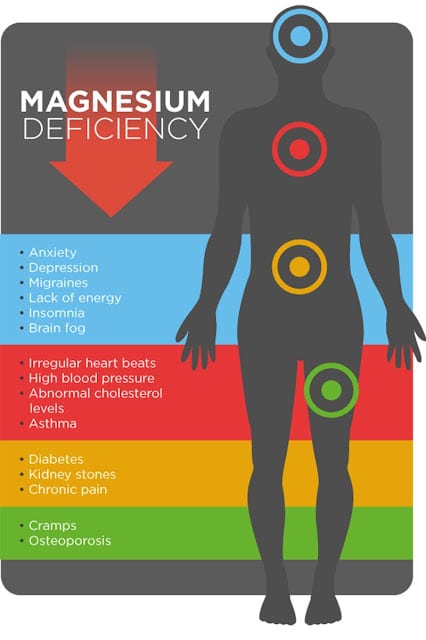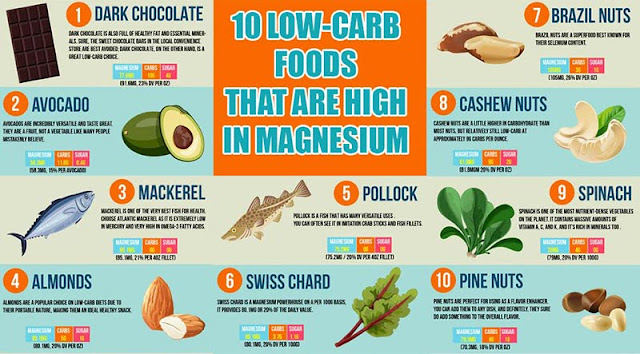Without enough magnesium, your body can’t function at its best. Magnesium is the fourth most abundant mineral in your body. Insufficient cellular magnesium levels have been linked to the deterioration of proper metabolic function that can lead to significant health problems.
This mineral is necessary for many biological processes. It plays a role in the body’s detoxification process, prevents migraine headaches, sudden cardiac death, cardiovascular diseases (high blood pressure, heart attack, and strokes), and even reduce death from all causes.
Low Magnesium Levels Consistently Found In Those With Elevated Insulin
Several significant studies showed that magnesium plays an important role in keeping your metabolism running, particularly in terms of insulin sensitivity, glucose regulation, and protection against type 2 diabetes. Here are just a few:
- An ADA study from October 2013 revealed that through the higher intake of magnesium, there can be a reduced risk of impaired glucose and insulin metabolism and slows progression from pre-diabetes to diabetes in middle-aged Americans.
- In a 2013 study, researchers found that most pre-diabetics had inadequate magnesium intake. On the other hand, those with the highest magnesium intake have their risk for blood sugar and metabolic problems reduce by 71%.
- In a large Japanese study (the Hisayama Study) published in Diabetic Medicine December 2013, it was found that magnesium intake was a significant protective factor against type 2 diabetes in the general Japanese population, especially among those with a drinking habit, insulin resistance, and low-grade inflammation.
- Lastly, research at Framingham Offspring cohort (2006) showed that higher magnesium intake improved insulin sensitivity and reduced type 2 diabetes risk.
Why Is Magnesium So Critical for Proper Metabolic Function?
Magnesium is needed to activate tyrosine kinase, an enzyme that functions as an “on” or “off” switch in many cellular functions and is required for the proper function of your insulin receptors.
People with insulin resistance experience an increase excretion of magnesium in their urine. This further contributes to diminished magnesium levels which appears to be secondary to increased urinary glucose, which increases urinary output.
So, inadequate magnesium intake seems to prompt a vicious cycle of low magnesium levels, elevated insulin and glucose levels, and excess magnesium excretion. This means that the less magnesium your body has, the less it appears to be able to “hang onto it.
Therefore, if you want to optimize your metabolism and keep your risk for type 2 diabetes low, all you have to do is to consume adequate magnesium.
Are Your Magnesium Levels Up to Par?
Aside from diet, other factors that make you prone to magnesium deficiency include:
- An unhealthy digestive system
- Diabetes
- Age
- Unhealthy kidney
- Alcoholism
- Certain medications
Magnesium Deficiency Can Lead to Heart Arrhythmias, Coronary Spasms, and Seizures
Some of the early signs of magnesium deficiency include headaches, nausea, fatigue or weakness, loss of appetite, and vomiting. Yet, ongoing magnesium deficiency can lead to far more serious symptoms such as:
- Seizures
- Numbness and tingling
- Abnormal heart rhythms and coronary spasms
- Muscle cramps and contractions
- Personality changes
Your Best Magnesium Source: REAL Food
By simply eating a varied diet which includes plenty of dark-green leafy vegetables, you can keep your magnesium levels in the therapeutic range. However, the magnesium content of your food will still depend on the richness of magnesium in the soil where they are grown.
Juicing your greens is one way to really increase your magnesium. Here is the list of some foods that are exceptionally high in magnesium (All listed portions equate to 100 grams or just over three ounces):
- Spice, coriander leaf, dried (694 mg)
- Seaweed, agar, dried (770 mg)
- Dried pumpkin seeds (535 mg)
- Spices, basil, dried (422 mg)
- Flaxseed (392 mg)
- Almond butter (303 mg)
- Whey, sweet, dried (176 mg)
- Cocoa, dry powder, unsweetened (499 mg)
- Whey, sweet, dried (176 mg)
Another way to improve your magnesium status is to take regular Epsom salt baths or foot baths and taking a magnesium supplement for your daily needs. Epsom salt is a magnesium sulfate that can absorb into your body through your skin. Magnesium oil can also be used for topical application and absorption.
Preventing Type 2 Diabetes Requires A Multi-Pronged Approach
Type 2 diabetes is easily preventable and nearly 100 percent reversible without drugs. A multi-faceted approach is needed to prevent this terrible disease. Getting adequate magnesium is just one part of the formula. The primary cause of obesity and type 2 diabetes is excessive dietary fructose, which has adverse effects on all of your metabolic hormones. Other critical lifestyle factors include exercise and optimizing your gut flora.
Are you one of the many who was diagnosed with type 2 diabetes? If I were you, I would avoid the pharmaceutical approach since diabetes drugs have many dangerous side effects and fail to address the underlying problem.











